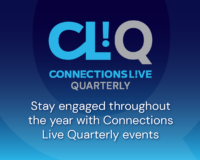
Gen Z, born between 1995 and 2015, is one of the fastest growing consumer groups across the globe. Despite its youth, this generation and its growing influence on brands and business has quickly transformed into a powerful economic force.
Today, Gen Z accounts for more than 40% of consumers around the world and boasts a whopping $360 billion USD in disposable income, according to a study from Bloomberg.
That alone makes Gen Z a powerful market for CPG brands, fuel providers, and national convenience retailers to tap into. However, the generation also demands that businesses meet a higher standard before they’re willing to become loyal customers.
The three main factors impacting Gen Z’s purchase decisions today are:
- Digital influence
- Social and environmental consciousness
- Transparency and authenticity
Digital influence drives buying patterns
To reach a generation of digital natives, digital marketing is essential to both online and in-person purchases.
Gen Z is wary of the long-term effects of social media, but platforms like Instagram remain deeply ingrained in the way they buy individual products and develop lasting relationships with brands.
A study on Gen Z consumer trends from McKinsey & Company found that in any given week, Gen Z will shop the same amount offline as they do online.
However, even those in-person transactions are influenced by digital presence. In a survey conducted by Squarespace, 60% of Gen Z agreed that the way you present yourself online is more important than how you come across in person.
For CPG brands, this emphasizes the importance of a digital presence to increase both online and in-store sales.
Gen Z and sustainability
Although they’re not alone, Gen Z is more concerned about the environmental impact of their purchases than any other generation. According to the PDI Business of Sustainability Index, 91% of Gen Z say they want to buy from sustainable companies.
In fact, 77% of Gen Z is willing to pay more for sustainable products and services, compared to 72% of Millennials, 67% of Gen X, and 62% of Baby Boomers.
Gen Z’s proclivity for environmentally conscious choices extends to the fuel pump, where 76% of Gen Z consumers said they would pay more for gas if the carbon emissions were offset, according to PDI.
Having easy access to an abundance of information from a young age has made Gen Z keenly aware of the consequences—or benefits—of their buying decisions. That’s one of the reasons why 81% of the generation is more likely to purchase environmentally friendly products based on the climate events they’ve experienced in the past 12 months.
To stay top of mind as Gen Z consumers navigate the market, brands need to consistently communicate their sustainable values and practices. Sustainability messaging is most effective when it occurs digitally and at the point of sale—and when it’s backed by honesty and authenticity.
Trust comes from transparency
Brands that secure the trust of Gen Z consumers tend to see strong patterns of loyalty and high customer lifetime value. In a study from Edelman, 67% of respondents said that they were more likely to stay loyal and advocate for a trusted brand.
But breaking that trust can be proportionately detrimental: 60% of Gen Z agree that they will entirely cease buying a product if they lose, or fail to develop, trust in the brand.
That level of scrutiny is commonplace, as 40% of Gen Z buyers think corporations are doing a poor job of reducing their carbon footprint and 37% believe corporate profits should support environmental organizations.
With every step a brand takes toward becoming more sustainable, transparency and authenticity are the only sure way to secure Gen Z’s trust and lifetime loyalty.
Learn more about sustainability strategies
If you’re interested in understanding how you can better connect with Gen Z consumers, PDI Sustainability Solutions is ready to assist you. Contact us today to learn how we can help you transform your business.







